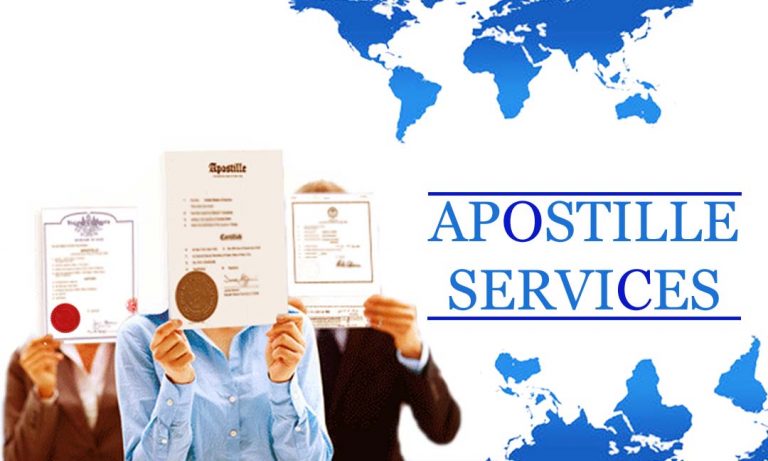Understanding the Significance of Apostille Accreditation and Why It Is Crucial for Lawful Papers
Among the different systems available for this objective, apostille accreditation stands out as a streamlined and universally identified approach. Comprehending the ins and outs and effects of apostille qualification on lawful papers is crucial for individuals and companies engaging in cross-border tasks.
The Interpretation of Apostille Qualification
Apostille accreditation is a specific kind of verification that validates the authenticity of a legal paper for global usage. This qualification is critical for guaranteeing that documents coming from one country are identified as legitimate in another, streamlining the process of cross-border transactions, lawful process, or individual matters like marriage or adoption. The Hague Apostille Convention of 1961 established the framework for this simplified qualification process among taking part nations.
To obtain an apostille qualification, the designated authority in the paper's nation of origin have to validate the document's credibility before affixing the apostille. When affixed, the apostille ensures that the document will be approved as valid in any kind of various other country that is component of the Apostille Convention, without the requirement for more accreditation.
Advantages of Apostille for Legal Papers
The use of apostille certification improves the global acknowledgment procedure for lawful papers, using significant benefits in facilitating legal rules and cross-border interactions. One vital advantage of apostille accreditation is that it ensures the authenticity of the paper concerned. By connecting an apostille certification, the paper comes to be easily approved in countries that belong to the Hague Apostille Convention, getting rid of the requirement for additional verification. This not only conserves time but also minimizes the administrative obstacles that frequently come with global document verification procedures.
In addition, apostille certification improves the total performance of legal procedures by simplifying the process of confirming the authenticity of a record. Overall, the benefits of apostille accreditation for lawful papers are crucial in promoting smoother international engagements and guaranteeing compliance with legal demands throughout boundaries.
Apostille Vs. Legalisation: Secret Distinctions
When comparing the procedures of apostille accreditation and legalisation for legal records, it is necessary to understand the crucial differences in their particular verification approaches. An apostille is a simplified kind of legalization that is approved amongst countries that are component of the Hague Apostille Convention. The apostille procedure confirms the credibility of the document and the signature of the releasing authority. It does not require additional consular office or consulate legalization, making it an extra cost-effective and simple approach for validating files worldwide.
This process can be much more time-consuming and expensive contrasted to acquiring an apostille. The choice between apostille qualification and legalisation depends on the certain demands of the country where the record will certainly be utilized.
Countries Approving Apostille Qualification

While the Hague Apostille Convention has dramatically simplified the procedure of cross-border file verification, there are still countries that are not event to the convention - Houston TX Apostille. Consequently, records destined for these nations may need traditional legalisation treatments with consular offices or consular offices. It is important for people and companies taking care of global transactions to confirm the specific requirements of the location nation to ensure compliance with their lawful criteria
Steps to Acquire Apostille for Records
To acquire an apostille for your files, you need to start by identifying the proper releasing authority in your nation. The issuing authority is typically the federal government department accountable for validating records, such as the Secretary of State's office. The following step is to ensure that your file meets all the requirements for apostille accreditation once you have actually determined the proper authority. These requirements typically include having a signature from a recognized official, such as a notary public, and any required supporting files.
After confirming that your document fulfills the standards, you will certainly need to complete an apostille application form given by the releasing authority. This type will require information regarding the file being authenticated and the nation where it will certainly be used. Along with the finished application, you will likely need to send the original file, a duplicate of your recognition, and any type of applicable i thought about this costs.

Conclusion
In verdict, apostille accreditation plays an important role in making certain the credibility and validity of lawful files for global use (Houston TX Apostille). Understanding the relevance of apostille certification is important for people and companies browsing the intricacies of cross-border transactions and lawful matters. By obtaining apostille accreditation, parties can enhance the procedure of file confirmation and authentication, inevitably saving time and resources in the global arena
To acquire an apostille qualification, the assigned authority in the record's country of origin have to verify the paper's credibility before connecting the apostille. As soon as affixed, the apostille guarantees that the record will be accepted as legitimate in any kind of other country that is component of the Apostille Convention, without the demand for further certification.
By connecting an apostille certification, the document becomes easily approved in nations that are component of the Hague Apostille Convention, eliminating the need for additional authentication.Differentiating in between apostille certification and legalization reveals the varying acceptance of these verification approaches throughout various nations, with some countries especially recognizing and adhering to the apostille process. The apostille certification is widely accepted among countries that are part of the Hague Apostille Convention, which currently has 118 member states.